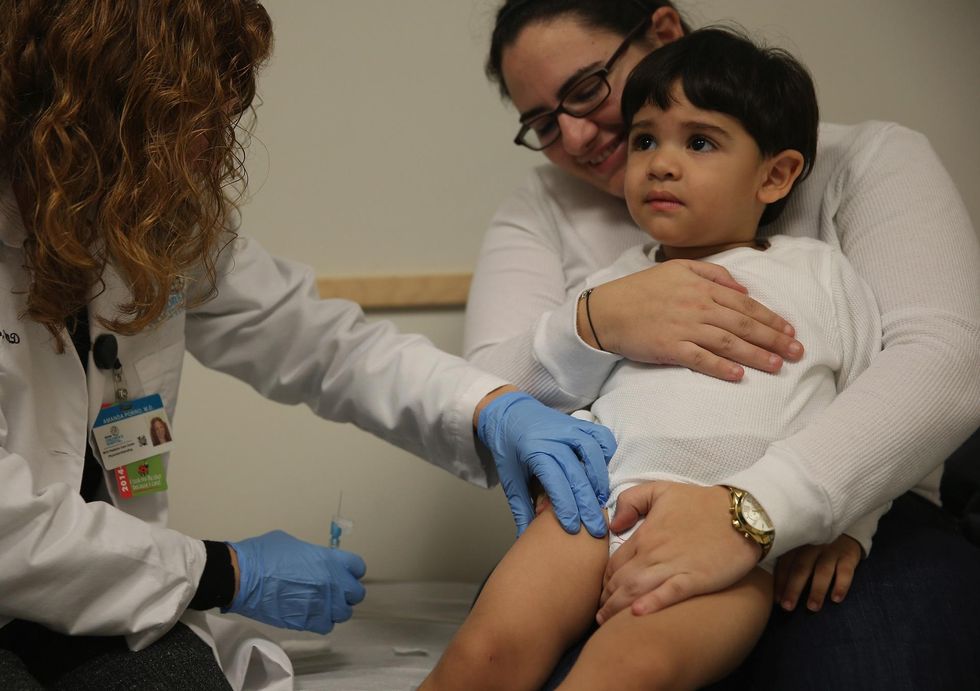
A new study raises the alarm that there are "hotspots" in the U.S. where a large number of parents are opting out of recommended vaccinations for their children. (Joe Raedle/Getty Images)

A study published Tuesday in the journal PLOS Medicine indicates that the growing "social movement of public health vaccine opposition" has led to an increase in measles outbreaks in the United States.
Researchers identified a number of American cities named as "hotspots" that stand out as vulnerable to the disease, due to the elevated number of citizens who choose nonmedical exemptions to vaccinating their children.
In their report, researchers led by Dr. Peter Hotez said that "Since 2009, the number of 'philosophical-belief' vaccine nonmedical exemptions has risen in 12 of the 18 states that currently allow this policy: Arkansas, Arizona, Idaho, Maine, Minnesota, North Dakota, Ohio, Oklahoma, Oregon, Pennsylvania, Texas, and Utah."
Hotez said that with the rise in the number of kindergartners in those states who enter kindergarten without their shots, the study serves as a "wake-up call."
He adds that "There's a very straightforward way to fight it and that is what they did in California. The California Legislature had the courage to halt nonmedical vaccine exemptions."
California made that move following a measles outbreak at Disneyland during 2014-2015. Although measles was believed to have been eradicated from the U.S. in the year 2000, Americans who are unvaccinated are still at risk if exposed to individuals from other countries or those who have traveled to other countries.
While there are legitimate risks posed by refusing vaccinations to children, there is also legitimate pushback about how much the government should impose such requirements on parents — who also have the right (in certain states) to weigh the risks between disease and the possible consequences of vaccine side effects for their children.
Although vaccination rates have risen, according to the Centers for Disease Control and Prevention, so have vaccine refusals.
Hotez brings a deeper perspective into the discussion: "I'm a vaccine scientist, but I'm also an autism dad trying to fight this antivaccine movement at a very personal level."
Even though the theory has been dismissed by the medical community and the CDC adamantly maintains that vaccines do not cause autism, many parents are understandably apprehensive when it comes to vaccinating their children.
Groups and celebrities such as Jenny McCarthy have held widespread campaigns blaming vaccines for causing autism. Debunked or not, such a theory terrifies parents.
And while the CDC advocates vaccination, it also warns that even with the common measles, mumps and rubella shot, there is a "rare" risk of "deafness, long-term seizures, coma, or lower consciousness" — and even brain damage.
Anti-vaxers and vaccination proponents have strong feelings on both sides. The medical community insists that "the disease-prevention benefits of getting vaccines are much greater than the possible side effects for almost all children."
Meanwhile, anti-vaxers, although they tend to trust medical professionals, hold a profound distrust for the government and "big pharma." With all the inoculations required for children, such skepticism is understandable, if not entirely warranted.